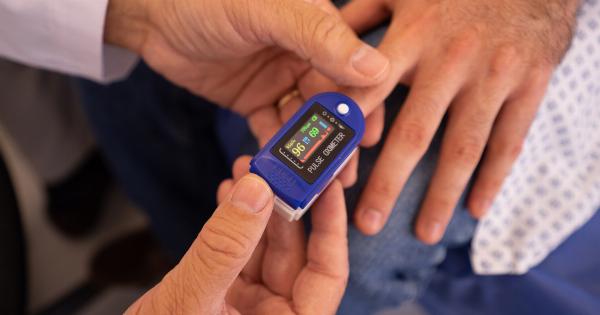Diabetes is a chronic health condition that affects millions of people worldwide. It occurs when the body is unable to properly regulate the levels of sugar (glucose) in the blood.
This can happen due to either lack of insulin production or the body’s inability to use insulin effectively. As a result, diabetes can lead to a variety of health complications if not managed properly. In this article, we will explore the symptoms and treatment options available for managing diabetes.
What are the Symptoms of Diabetes?
Diabetes can manifest through various symptoms, which can vary in severity depending on the individual. Some common signs and symptoms of diabetes include:.
- Frequent urination
- Excessive thirst
- Unexplained weight loss
- Constant hunger
- Fatigue and weakness
- Slow healing of wounds
- Blurred vision
- Numbness or tingling in the hands and feet
- Recurrent infections
If you experience any of these symptoms, it is important to consult a healthcare professional for a comprehensive evaluation. Early detection and treatment of diabetes can prevent or delay the onset of complications.
Types of Diabetes
There are three main types of diabetes:.
Type 1 Diabetes:
Type 1 diabetes, also known as insulin-dependent diabetes, occurs when the body’s immune system mistakenly attacks the cells in the pancreas that produce insulin. This results in little to no insulin production in the body.
Type 1 diabetes usually develops in childhood or adolescence and requires lifelong insulin therapy.
Type 2 Diabetes:
Type 2 diabetes, the most common form of diabetes, occurs when the body becomes resistant to the effects of insulin or fails to produce enough insulin to meet the body’s needs.
It is often associated with lifestyle factors such as obesity, poor diet, and lack of physical activity. Type 2 diabetes can usually be managed through lifestyle modifications, oral medications, or insulin therapy if necessary.
Gestational Diabetes:
Gestational diabetes occurs during pregnancy when hormonal changes disrupt the body’s ability to regulate blood sugar levels effectively.
This type of diabetes typically resolves after childbirth, but women who have had gestational diabetes have an increased risk of developing type 2 diabetes later in life.
Managing Diabetes: Treatment Options
When it comes to managing diabetes, treatment aims to regulate blood sugar levels and prevent or minimize the complications associated with the condition.
The treatment plan may vary depending on the type of diabetes, individual factors, and the severity of the disease. Here are some common treatment options:.
Lifestyle Modifications:
For individuals with prediabetes or type 2 diabetes, lifestyle modifications play a crucial role in managing the condition. These include:.
- Adopting a healthy diet rich in fruits, vegetables, whole grains, and lean proteins.
- Engaging in regular physical activity to improve insulin sensitivity and maintain a healthy weight.
- Losing weight if overweight or obese.
- Avoiding tobacco use and limiting alcohol consumption.
- Maintaining a regular sleep schedule.
Medications:
In addition to lifestyle modifications, oral medications may be prescribed for individuals with type 2 diabetes to help control blood sugar levels.
These medications work in various ways, including increasing insulin production, improving insulin sensitivity, and reducing glucose production in the liver.
Insulin Therapy:
Individuals with type 1 diabetes or advanced type 2 diabetes may require insulin therapy. Insulin is administered through injections or an insulin pump to help regulate blood sugar levels.
There are different types of insulin, including rapid-acting, short-acting, intermediate-acting, and long-acting insulin, each with its own onset and duration of action.
Blood Sugar Monitoring:
Regular blood sugar monitoring is essential for individuals with diabetes to keep their levels within the target range.
This involves using a glucometer to measure blood sugar levels at home or using continuous glucose monitoring (CGM) devices that provide real-time glucose readings.
Diabetes Education and Self-Management:
Diabetes education programs are valuable resources for individuals with diabetes. These programs provide information on meal planning, physical activity, medications, and blood sugar monitoring techniques.
Learning self-management skills empowers individuals to make informed decisions about their health and effectively manage their diabetes.
Preventing Diabetes Complications
Diabetes can lead to several complications if left uncontrolled. It is crucial to take proactive measures to prevent these complications. Here are some key strategies:.
- Maintain regular follow-ups with a healthcare provider.
- Keep blood sugar levels within the target range recommended by your healthcare team.
- Monitor blood pressure and cholesterol levels. High blood pressure and elevated cholesterol increase the risk of heart disease and other vascular complications.
- Take medications as prescribed and attend regular check-ups.
- Educate yourself about the signs and symptoms of complications, such as cardiovascular disease, kidney disease, nerve damage, and eye problems.
Conclusion
Managing diabetes involves understanding its symptoms and treatment options. While diabetes requires lifelong care, it can be effectively managed through a combination of lifestyle modifications, medications, insulin therapy, and regular monitoring.
By taking an active role in diabetes self-management and working closely with healthcare professionals, individuals with diabetes can lead healthy and fulfilling lives while reducing the risk of complications.





















